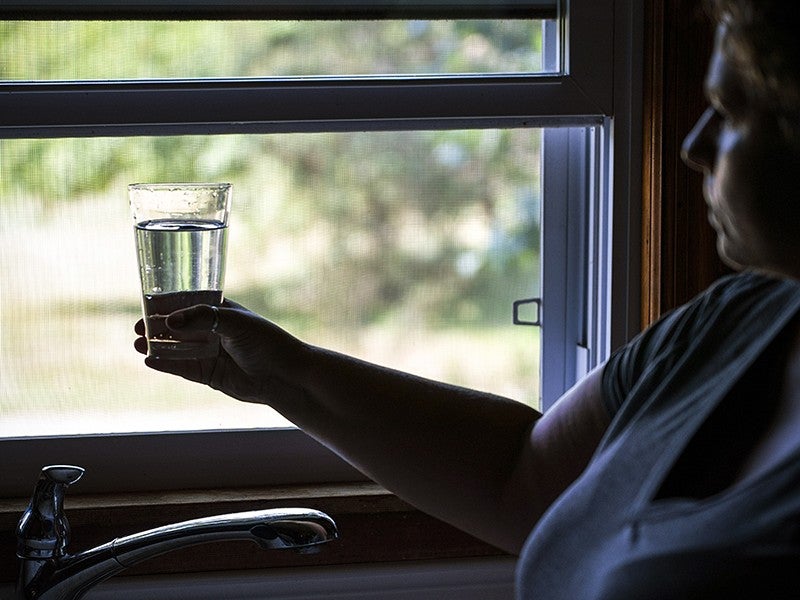In the Race for Dirtiest Water, Indiana Pulls Ahead with Repeal of Wetlands Protections
The state just doubled down on its dirty water status by embracing the Trump administration’s weak regulation instead of strengthening its own.
Last month, Indiana legislators started gutting the state’s few wetlands protections in favor of the weaker regulation of the Trump administration’s Dirty Water Rule. Many wetlands in Indiana lack any protection from pollution by state laws or the Environmental Protection Agency (EPA) under the Clean Water Act. Indiana’s latest action exposes the big lie that Dirty Water States use as cover for their support of the Trump administration’s clean water rollbacks. Simply put, these states are racing to the bottom, opting for less EPA protection and less state protection.
Last year the Trump administration rolled back protections for our nation’s waters; protections that have been in place for over 40 years. The Dirty Water Rule, officially called the Navigable Waters Protection Rule, followed the Trump administration’s orders to the EPA to eliminate Clean Water Act protections for thousands of waterbodies across the nation. Those rules prohibited the dumping of pollutants into waters and wetlands, and they prevented the destruction of those resources for mining, industrial agriculture, and real estate developments.
This gutting of the Clean Water Act runs contrary to both science and the law — EPA’s own Science Advisory Board admitted this under Trump — yet it fulfills the wildest dreams of environmentally harmful industries and, strangely, the political leadership of many states, who favor industry over residents.
Make America Dirty Again?
The Clean Water Act was passed by a robust bipartisan vote in the early 1970s after decades of Congress trying unsuccessfully to get states to clean up their streams and rivers. Congress had thrown hundreds of millions of dollars of funding at states to coax them to clean up, but those efforts failed miserably.
Yet states like Indiana claim that they, not the federal government, should regulate pollution of the waters within their borders. These states and the polluting industries they support justify the removal of federal water protections by arguing for “states’ rights,” “constitutional commerce clause limits,” “federalism,” or the need for “regulatory flexibility.”
These arguments are a cloak to advance an anti-regulatory agenda — a race to the bottom that puts industry before people. If they weren’t, states would be racing to strengthen their own water protections after the Trump administration forced its Dirty Water Rule on the country. Instead, these states have either accepted the weaker protections, or in cases such as Indiana and Florida, weakened protections even more.
The Big Lie
The deception that less EPA protection will somehow result in stronger water protections is what industry wants people to believe.
There are two obvious reasons for this lie:
First, the Clean Water Act already gives state agencies the ability and obligation to develop their own water quality standards for all uses of water, including drinking, swimming, boating, fishing, wildlife, and commerce. Under the Act, states get a first crack at writing and enforcing permit requirements for companies that could pollute state waters. The Clean Water Act allows and even encourages states to enact more stringent protections of state waters than required by federal law, which Indiana has refused to do.
In fact, the state passed a law repealing the few additional wetlands protections on its books, opting instead for the deficient coverage of the Dirty Water Rule. The effect is that many Indiana wetlands will have no protections at all, despite almost 75% of the state’s voters believing that their waterways are too polluted and need to be cleaned up. This is what “local control” and “regulatory flexibility” look like in practice: the sacrifice of communities and their environment in favor of corporate profits.
The second reason Dirty States tell the lie that federal water protections are bad for states is that most states have not been meeting minimum requirements of the Clean Water Act and have no intention of doing so in the future. While they claim that states should be responsible for regulating their own waters, those states have no laws that create the motivation to meet the responsibility.
When a waterbody or wetland unprotected by state laws is also stripped of Clean Water Act protections, as was the case with the Trump administration’s Dirty Water Rule, those waters have no protection from pollution or destruction from the state or federal governments. This is what just happened to Indiana wetlands.
But Indiana is not alone: Eight other states have laws that forbid state regulators from doing more than the Clean Water Act requires. Eighteen more states are making it impossible to be more protective, and 29 states have no permitting requirements for isolated wetlands, leaving them vulnerable to mining, development, industrial farming, and pollution discharges — all with no government oversight. Thirty-two states don’t even have wetland monitoring and assessment programs to be aware of who is polluting which waters and for what reasons. And now that the Dirty Water Rule has stripped them of Clean Water Act protections, the EPA won’t either.
Earthjustice rejects this race to the bottom and is working hard to change course. We are fighting in the courts to secure the promises of the Clean Water Act and prevent dirty industries and states from gaming the system. We look forward to working with the Biden administration to ensure that science and the law direct new and improved rules for protecting U.S. waters. In the meantime, we call on states like Indiana to listen to their residents, reject the Dirty Water rule, and end this race to the bottom.
Established in 1987, Earthjustice's Northwest Regional Office has been at the forefront of many of the most significant legal decisions safeguarding the Pacific Northwest’s imperiled species, ancient forests, and waterways.
Established in 1989, Earthjustice's Policy & Legislation team works with champions in Congress to craft legislation that supports and extends our legal gains.
